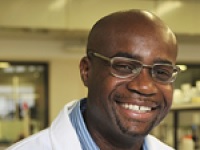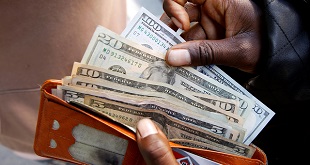
Continent can transition from its near-total reliance on the global north for pharmaceutical innovations to meet its unique needs
COMMENT | KELLY CHIBALE | One hundred and forty-two years after its discovery, Tuberculosis (TB) remains a global public health problem. Despite being preventable and curable, 1.3 million people died from TB in 2022, 424,000 of them in Africa and 54,200 of them in South Africa alone. Statistically, that means one life was lost to TB every 10 minutes in South Africa during that period. It is noteworthy that TB caused by Mycobacterium tuberculosis is the world’s leading cause of death from an infectious disease and a leading example of the growing problem of antimicrobial drug resistance (AMR).
Despite progress made in the fight against TB in recent years, the global goal of eradicating the disease by 2030 is under threat. Fueling the crisis is a complex web of challenges including weak health systems that are inadequately equipped to prevent, diagnose, and treat TB, insufficient funding, poor nutrition, co-morbidities such as HIV, and rising drug resistance; the latter of which is emerging as a major public health concern on the continent. In 2022 for example, 410,000 people developed multi-drug resistant TB, with 160,000 losing their lives. While there are new drugs for treating drug-resistant TB, the treatment duration is roughly three times longer compared to conventional therapy, and patients may experience more side effects.
We need a multi-pronged approach founded on African-led research and development (R&D). It’s astounding that despite bearing the heaviest TB burden in the world and 24 percent of the global disease burden, less than 1 percent of the global scientific output comes from Africa, with devastating consequences on our ability to address health challenges and achieve global health goals.
Today, Africa imports 70-90 percent of drugs and 99 percent of vaccines used on the continent, leaving us at the mercy of global demand and supply dynamics. To strengthen our health systems, emerge as a formidable player in the global pharmaceutical supply chain, and safeguard the health and well-being of our population, we must invest in robust drug R&D infrastructure as a matter of urgency.
Addressing TB and other infectious diseases requires us to build world-class academic research centres with a multidisciplinary approach to drug discovery, strengthen capacity within learning institutions to develop new capabilities for pharmaceutical R&D, train highly skilled scientists, and create supply chain models with a clear pipeline for locally-developed drugs to move from the lab to the patients when, where and how they need them.
Through such investments we can develop more effective, affordable, and easily available treatments for TB, accelerating the fight against a disease that has for too long persisted among our communities. We cannot afford to wait for major global pharmaceutical companies to see the commercial returns that would warrant investment in R&D for treatments needed by Africans – we must lead the charge.
However, by 2019, Africa’s expenditure on health research was only 0.42 percent , much lower than the global average of 1.7 percent. As of last year, no African country had met the 2006 goal of committing at least 1 percent of its gross domestic product (GDP) to R&D. Even South Africa, one of the continent’s most advanced countries in drug manufacturing and public health research, committed just 0.85 percent of its GDP to research and development.
The numbers are clear evidence that ramping up investment in drug discovery will not be an easy undertaking. However, we must be encouraged by the milestones that African countries are achieving in the race to eliminate TB. According to the World Health Organisation (WHO), the African region was recording a 4 percent annual decline rate in TB cases by 2023, double the global pace. But to hit the 2030 End TB Strategy targets to cut TB deaths by 90 percent and cases by 80 percent, the annual rate of decline must be accelerated to 17 percent.
Strengthening Africa’s drug discovery capabilities, alongside other critical investments in health systems, offers us a chance to meet these targets. World-class drug discovery research centres exemplified by the Holistic Drug Discovery and Development Centre (H3D) – Africa’s first drug discovery centre, are already invested in the African cause. Their focus on uplifting African researchers and research, knowledge exchange, network building and discovering and developing drugs for diseases that predominantly affect the African population make them indispensable allies in the fight against TB and other infections. The recent announcement of a US$7.2 million joint investment by LifeArc and the Bill and Melinda Gates Foundation to support the Grand Challenges African Drug Discovery Accelerator (GC ADDA) network is a welcome development as one of the five projects to be supported is focussed on TB drug discovery.
By funding homegrown drug discovery and strengthening partnerships that allow us to participate meaningfully in global drug discovery and give us access to funding, we can transition from our near-total reliance on the global north for access to pharmaceutical innovations to becoming leaders and critical partners in ideation, research, and design of drugs that meet our unique needs.
The time is now for African countries to support locally-led and owned drug discovery. We all have a role to play. Governments must multiply and follow through on commitments to invest in drug R&D, research institutions must continue building and sustaining global partnerships to scale up innovation and expand their reach, and health professionals and communities must hold their leaders to account and demand greater support for – and access to – African-led research and locally manufactured drugs. Together, we can, and must, end TB in Africa.
*****

Prof. Kelly Chibale is Founder and Director, Holistic Drug Discovery and Development (H3D) Centre
 The Independent Uganda: You get the Truth we Pay the Price
The Independent Uganda: You get the Truth we Pay the Price


